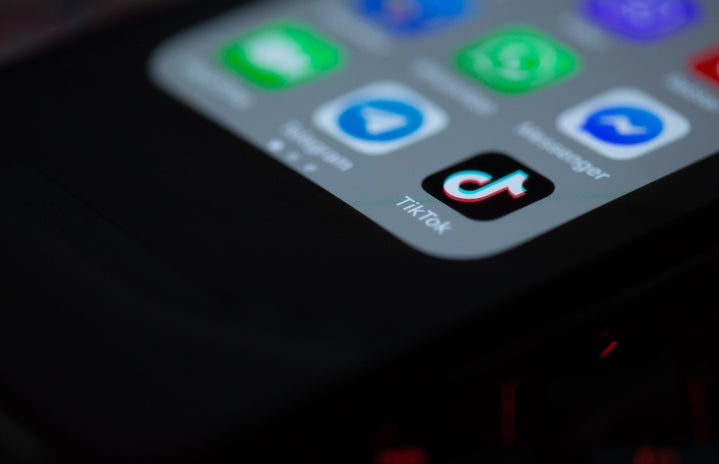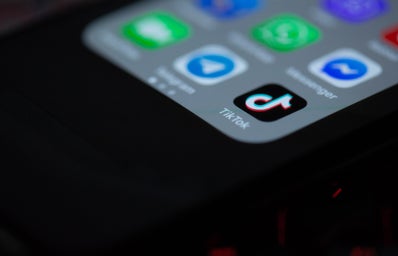Content warning: this article mentions eating disorders, and content that may be sensitive to some readers.
At the end of 2020, TikTok was the most downloaded app of the year, with an estimated 2.6 billion downloads worldwide. Basically, if you’ve been anywhere near social media (or even the news) in the last 12 months, you will have heard of this app. But what is it that makes it so compelling – and more importantly, why has it had so many controversies?
I downloaded the app almost a year ago now, in a moment of peak boredom last spring when I had nothing better to do. And I can safely say it is the most interesting social media platform I have ever used (and definitely not always in a good way). The first thing to mention is that this app is so addictive. The algorithm means that, unlike Instagram or Facebook’s feeds, content will literally never run out and with the cap on video length being 60 seconds, you’re unlikely to get bored. I’m slightly ashamed to say that even at 20 years old, I have had to put a time limit on TikTok.
But this is the key thing about TikTok’s user demographic – and it’s where the problems start. It’s estimated that 18% of UK users are under 18, which may not sound like much until you realise that 17 million people in the UK use the app. That’s a staggering amount of young and impressionable people, who can easily get the wrong ideas. Now, I’m lucky in that (at the geriatric age of 20), my ‘For You’ page is a mostly wholesome place consisting of dogs, interior design ideas and videos of frogs.
But that doesn’t mean I haven’t seen things that are alarming. One of the most prominent uses of TikTok for teenagers has been the infamous dance challenges, many of which are sexual or suggestive – and which young girls, who perhaps just want to get involved without realising the implications, have been a part of. One of the latest controversies just this month is the #silhouettechallenge, in which (mostly girls) would dance provocatively in a doorway, often in lingerie, with red lighting so as to only show their silhouette. Then internet predators got a hold of it and found a way to remove the red filter so as to see the women’s bodies in full.

And this isn’t the only thing I’ve noticed. TikTok also has a big issue (in my experience, at least) with the romanticisation of mental health issues and eating disorders. It reminds me so much of 2015 Tumblr in the way that these issues have come to be presented as idealised or competitive in some way for young people. Of course, social media can always be used to find support from others going through similar things, but comments such as ‘guess I won’t be eating today’ under videos of young, slim or athletic girls hardly gives this impression.
It’s similar to the ridiculously unrealistic morning routines or productivity vlogs that we’ve become accustomed to seeing on YouTube. I, (as someone who is slightly older and has a little more life experience), can recognise that this is not representative of real life. However, I can’t help but think that if I had been exposed to this kind of stuff when I was a teenager, it would have been a very different experience.
One of the arguments that comes up time and time again when discussing young people and social media is parenting. And yes, it’s more important than ever that parents realise the dangers that apps such as TikTok can pose to their children, and the type of content they could be seeing. But there is a much bigger picture missing here: surely, is it not TikTok themselves that should be held accountable?
If you create an app specifically designed for a younger target audience, then it is your responsibility to ensure that the content you are allowing is appropriate, and it’s clear that this is just not happening with TikTok. It seems so counter-intuitive to be telling young people to delete an app so as to not be exposed to content that never should have been allowed to exist in the first place.
Social media can be an incredibly positive and helpful space (and did I mention the videos of frogs?), and I think it’s time for companies to take responsibility and make sure it stays that way.


